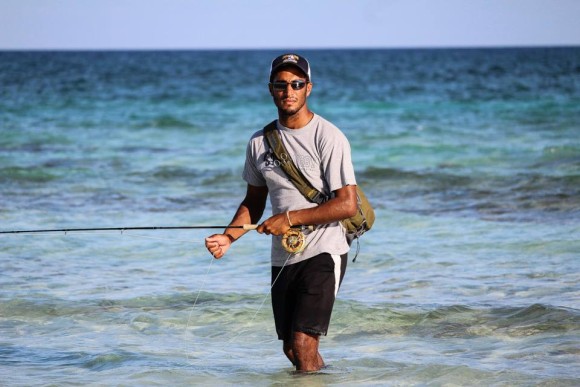Yeah… I agree. This sounds like such a bad project for the things I love.

Justin Lewis in the Bahamas
An open letter by Justin Lewis from BTT
The Rt. Hon. Dr. Hubert Minnis,
Bonefish & Tarpon Trust (BTT) is an international non-profit organization dedicated to the conservation of bonefish, tarpon, permit—the species, their habitats, and the larger fisheries they support. We work in a broad geography that spans the Caribbean Basin from its easternmost anchor in the Bahamas. Locally, we have worked for many years in the Bahamas, collaborating with the Bahamas National Trust, anglers, guides, fishermen, and other leading NGOs. Studies have shown that the flats fishing industry in The Bahamas contributes in excess of $141 million to the Bahamian economy annually, making it a valuable sustainable natural that benefits thousands of Bahamians, especially in rural communities.
The Island of Grand Bahama is an area where BTT has placed significant effort and continues to do so because of its expansive healthy flats habitat and thriving recreational bonefish fishery. It is where I, as a native Bahamian working for BTT, am based. Years of research by BTT and our collaborators has identified habitat loss and degradation as the greatest threats to bonefish and their habitats. Developments involving dredging, sand mining, and other manipulations of nature pose a significant threat not only to bonefish but a range of other environmentally and economically important species and habitats.
We received the news of the recently announced OBAN energies development in East Grand Bahama with great interest due to its potential impacts to the flats, coral reefs, and deep ocean—our most valuable natural resources—not only in that area, but along the entire southern side and eastern end of Grand Bahama. The OBAN plans to construct a large oil refinery and storage facility will require significant dredging, which will pose risks to our local marine environment and threaten fresh water aquifers. The 250,000 barrels of heavy crude oil slated for daily production also deserves closer scrutiny. Heavy crude oil is similar to bitumen, which comes from the oil sands of Canada, and has caused significant environmental issues there. Heavy crude emits three times as much CO₂ as regular crude oil and even coal and contains large quantities of heavy metal contaminants and sulfur.
Additionally, the silt created from the large amount of dredging to be done would be carried by prevailing winds and currents to our beaches, aquifers, the flats, and coral reefs along the entire south side and east end of Grand Bahama. Any future oil spill would follow the same path. Directly in harm’s way would be the Lucayan National Park, East Grand Bahama Protected Area, and the Northside-Gap National Park, which protect important bonefish spawning aggregation sites, bonefish spawning migration pathways, and bonefish flats that support the economically valuable fishery.
In consultation with other stakeholders in the Bahamian flats fishery, particularly in East Grand Bahama, we write to urge the greatest care in assessing this project and its environmental impacts. Topics that should be considered while conducting the environmental impact assessment should include: likelihood of an oil or other chemical spill; if a spill occurs how would it be contained, and where would the resulting pollutants be transported by ocean currents and through the aquifer; what will be the impact to the natural resources that support the travel and tourism industry; what will be the economic costs to the flats fishery due to the loss of anglers; will safeguards be in place in case the project fails or ceases operation.
Thank you for your consideration. As always, please consider BTT an information resource for bonefish and flats conservation efforts. We stand ready to provide assistance—please don’t hesitate to contact us with any questions or concerns.
Sincerely,
Justin Lewis
Bahamas Initiative Manager
- If you liked the story above, check out these stories below
- Next up... Grand Bahama and East End Lodge (0.949)
- Interview with Justin Lewis from BTT (0.922)
Tags: Bonefish and Tarpon Trust, Conservation, Grand Bahama, Justin Lewis



